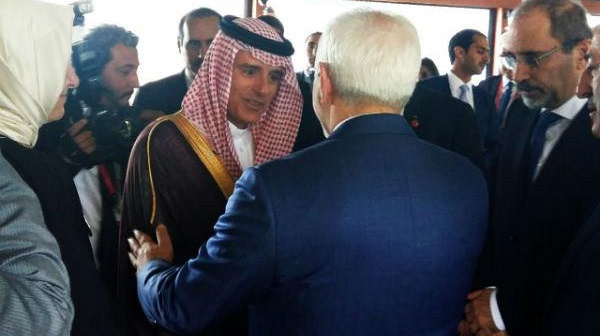Saudi Arabia Has Become Softer towards Tehran. How should we respond?

In the early 1990s, when the late President Hashemi Rafsanjani was seeking rapprochement between Iran and Saudi Arabia, despite the massacre of Iranian hajis in Mecca, Iran’s then ambassador to Riyadh Hadi Najafabadi made a statement that still lives today: “Iran and Saudi Arabia are two wings of the Muslim World”.
The straightforward comment received heavy backlash among politicians at the time. However, the passage of time and developments of the past decade have once again proved the implicit notion it tried to suggest. The bitter truth is that thanks to petrodollars and its “Custodian of the Two Holy Mosques” label, Saudi government has won alliances with most Islamic countries, so close that it managed to pass several anti-Iran resolutions in the Organization of Islamic Cooperation (OIC), the largest collective organization in the world of Islam, in the past year. There is no doubt that the petrodollars have left their imprint, convincing a significant number of poverty-stricken Islamic countries to cast ballots in favor Saudis’ anti-Iran bills.
This prelude brings us to the fundamental question about the prospects of ties between the two poles of the Muslim World. Some Western analysts believe that Saudi efforts to isolate and weaken Iran have failed and thus they are seeking the normalization of ties, albeit in a slow, conservative process. Here is a review of the factors behind the failed Saudi attempts that led to a shift in their strategy:
Regional and international factors include:
A rift in the [Persian] Gulf Cooperation Council, Qatar’s defiance against Saudis’ dominance over the region, Iran’s influence in Iraq and Lebanon, the Resistance Front’s victory in Syria with Iran’s central role, and the gradual decline of Wahhabi-Takfiri terrorist groups, Saudi Arabia’s costly yet futile war in Yemen, public international pressure over the massacre of Yemenis and violation of human rights, and Trump’s shaky status inside the US and in the international scene.
Domestic factors include:
Unfavorable economic situation caused by plummeting oil prices, the crisis that has followed the appointment of Mohammad bin Salman as the Crown Prince, royal court infighting, struggle against powerful religious scholars, muftis, and clerics who are against the Crown Prince’s plans for modernization, and the fight against social movements among the Shia minority and efforts to regulate the delicate relations with this community.
Saudi Arabia’s recent diplomatic initiatives are an alarm for Iran’s diplomatic apparatus to regulate its policies accordingly. Reciprocal visits by Saudi and Iraqi officials together with Muqtada al-Sadr’s Riyadh visit to talks with the Saudi Crown Prince are challenging Iran’s regional diplomacy. These updates call for closer attention to the sort of relations with Iraq’s Shia government, influential religious scholars and leaders, and the country’s civil society.
Saudis are pursuing several policy lines at the same time. On the one hand, they are offering Iraq incentives to join the Arab World again, beating Iraq to the drum of Arab identity and Arab nationalism along economic incentives. See it from the point of view of Iraqi officials and it is seductive.
On the other hand, emerges Riyadh's tolerance towards Iran, subtly acknowledging Iran’s regional power. The handshake between Saudi Foreign Minister Adel al-Jubeir and Iran’s Javad Zarif in Istanbul should be viewed optimistically because rapprochement and friendship between the two countries are not only in the interest of the two, but also effective for regional peace and security.
Final word: political events in the region over recent months have been favorable for Iran, putting the country in the spotlight. I call Saudi Arabia “the sick man of the Middle East” and believe at the moment that this sick man is yet to fully recover. Therefore, it is on Iran to do with him what they do with the sick, in order to take advantage of the situation. Whether the sick man will die will be determined by future developments in the region and our vigilance. It is of vital importance to pursue neighborly relations with Saudi Arabia and other Persian Gulf states. The situation in the region is quite fragile and calls on Iran to act as a sophisticated power and pursue an appropriate security policy in response to our small but rich neighbors’ security concerns and put an end to the arms race in the region.

